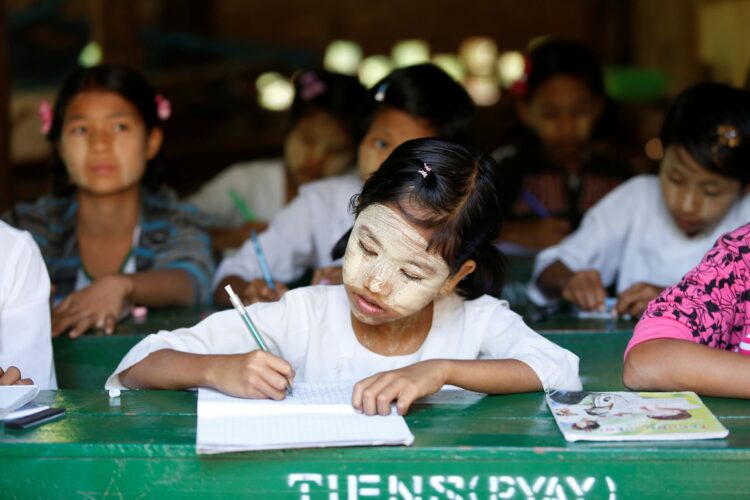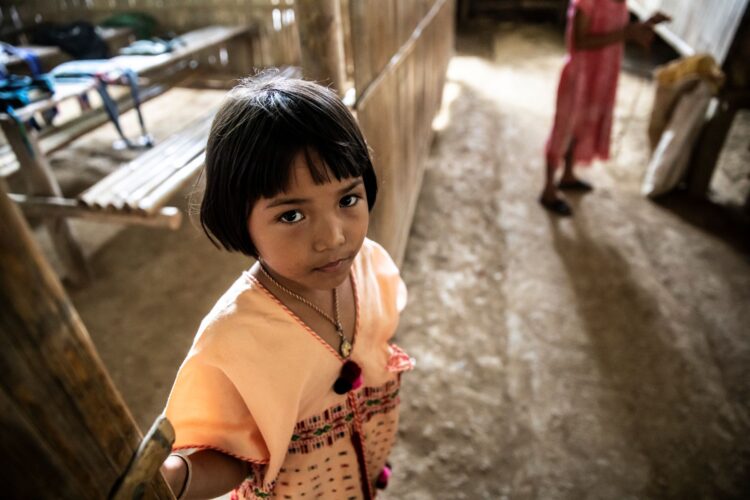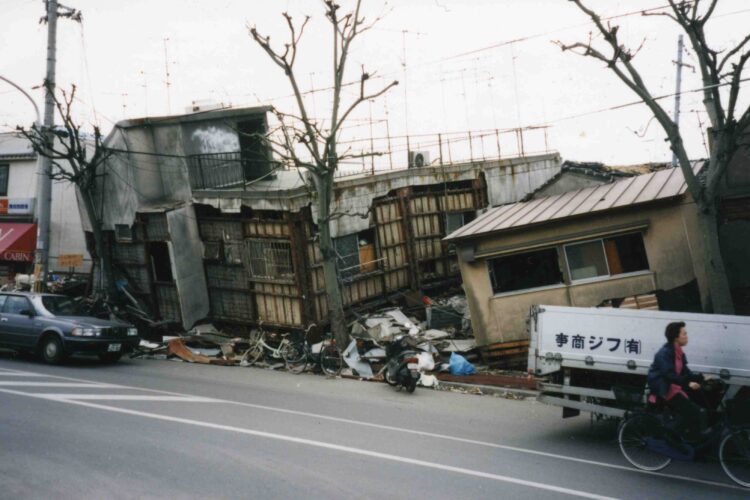Breaking the Cycle of Hatred and Delivering the Joy of Learning|In Remembrance of September 11
 (Photo: Hiromi Yasui)
(Photo: Hiromi Yasui)
Afghanistan, once forgotten by the world, came into the global spotlight 24 years ago with the attacks of September 11. Much has been examined about why such a tragic event occurred. Yet today, the incident is rarely reported, and a growing generation has little knowledge of it.
Going back even further, since the 1970s, Afghanistan has been caught in the power struggles of divided nations during the Cold War. The long, drawn-out conflicts have now become a distant memory for much of the world.
In 2021, the international community’s two-decade-long effort to build a path to peace ended in failure with the Taliban’s return to power. Behind the Taliban’s resurgence was not so much popular support for the regime, but rather the exhaustion of ordinary people—tired of insecurity, sudden airstrikes, and bombings. Many simply longed to return to days of peace.
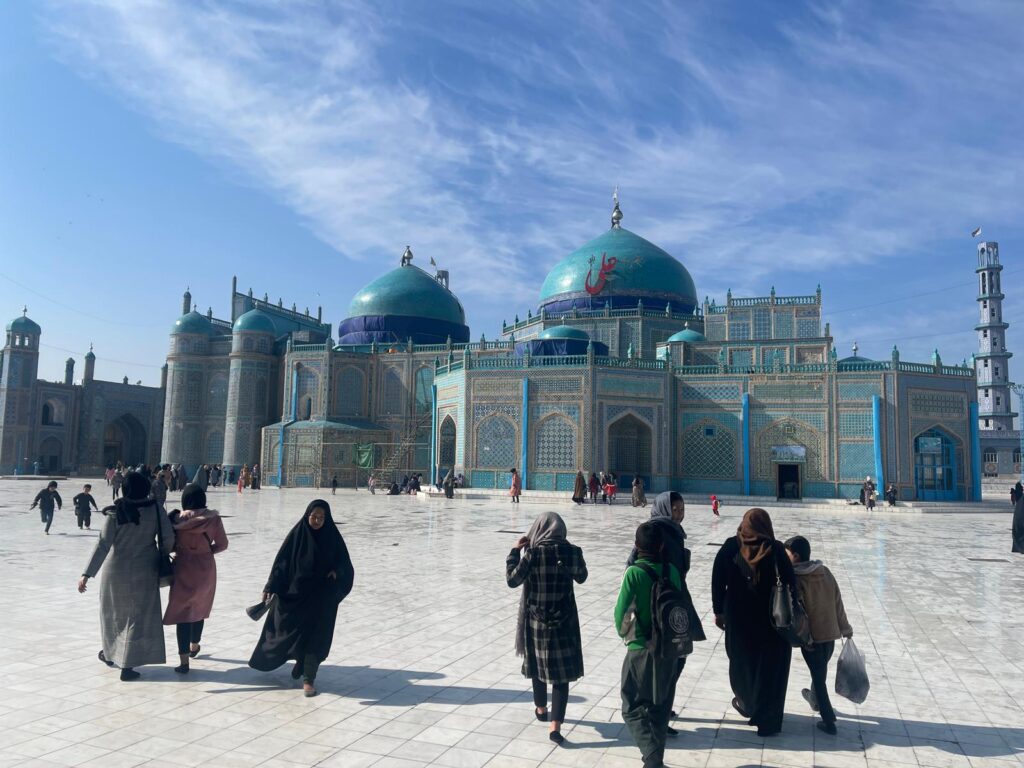 (Photo: Hiromi Yasui)
(Photo: Hiromi Yasui)
What often surprises me in my encounters with Afghanistan is how deeply Afghans feel a sense of closeness to Japan.
Twenty-three years ago, I visited a village in eastern Afghanistan as part of an election monitoring mission. The election was to begin inside the only building left in the village: a mosque. Just as voting was about to start, an armed militia, aligned with one of the warring factions, surrounded the mosque to disrupt the election. Another faction soon gathered in response, and hundreds of armed fighters encircled the mosque. Gunfire rang out, and it seemed a violent clash could erupt at any moment.
Inside the mosque, everyone rushed outside to try to defuse the situation, leaving only myself and one Afghan staff member behind. As the gunfire and shouting intensified, I heard the voice of the community leader calling out. A few moments later, he came to escort us out, insisting, “You must leave immediately.” A narrow passage was opened—just enough for two people to pass—allowing us to reach our vehicle and escape. Moments after we left the village, heavy gunfire resumed.
Later I learned that village elders had called out: “Japanese guests are among us. They must not be harmed. Ensure their safe evacuation first.” Even rival armed groups respected this appeal, temporarily halting their confrontation. Such was the value placed on honoring guests in Afghan culture.
 (Photo: Hiromi Yasui)
(Photo: Hiromi Yasui)
In protracted conflicts, many parents, impoverished and unable to raise their young children, were forced to hand them over to armed groups. These children learned only to obey orders and fight, without ever acquiring reading or writing skills. As adults, they believe whatever information is passed down by others. Those who lose their parents vow revenge, take up weapons, and the cycle of hatred born from poverty continues.
 (Photo: Hiromi Yasui)
(Photo: Hiromi Yasui)
Afghanistan, once called the crossroads of the Silk Road, remains a key region for stability—not only for the international community, but also for Japan.
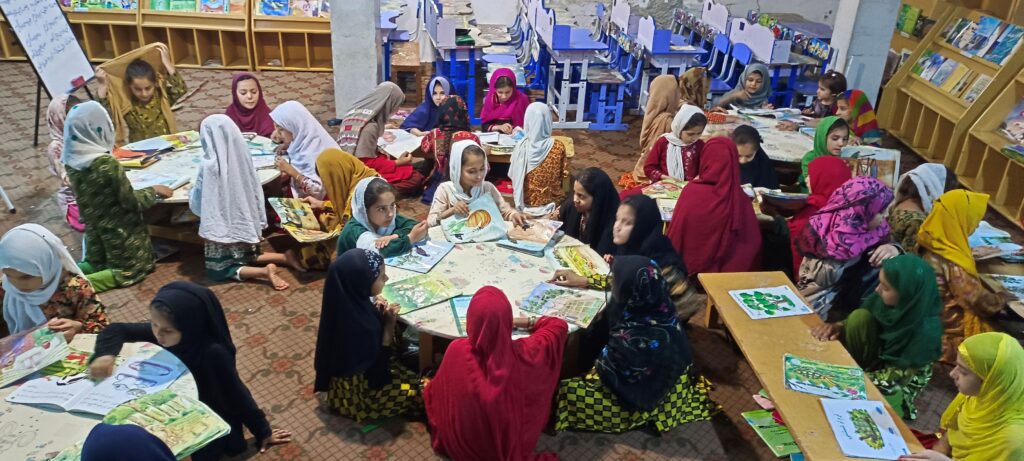
SVA’s activities in Afghanistan have now continued for more than 20 years. Children who once joined our programs have grown up, and today they themselves are passing on the importance of peace and education to the next generation. To break the cycle of hatred, we believe in books, not guns. Delivering the joy of learning is what we can do.
▶︎ Watch the video: “A Day at the Children’s Library in Afghanistan”
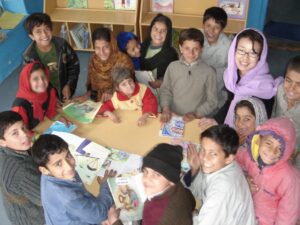
(Photo: Children’s Library, 2005)
Eri Yamamoto
Secretary General / Director of SVA Afghanistan Office
Thumbnail Photo: Masato Kanō


